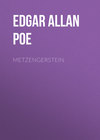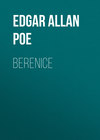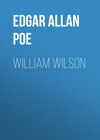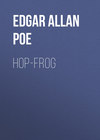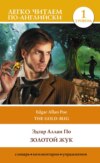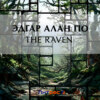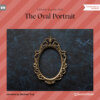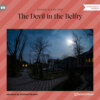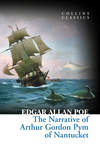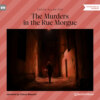Czytaj książkę: «The Complete Stories of Edgar Allan Poe», strona 48
I could scarcely restrain my indignation while I perused the concluding portions of this diatribe. It was clear to me that the yea-nay manner – not to say the gentleness – the positive forbearance with which the “Daddy-Long-Legs” spoke of that pig, the editor of the “Gad-Fly” – it was evident to me, I say, that this gentleness of speech could proceed from nothing else than a partiality for the “Fly” – whom it was clearly the intention of the “Daddy-Long-Legs” to elevate into reputation at my expense. Any one, indeed, might perceive, with half an eye, that, had the real design of the “Daddy” been what it wished to appear, it, (the “Daddy,”) might have expressed itself in terms more direct, more pungent, and altogether more to the purpose. The words “penny-a-liner,” “mendicant,” “scullion,” and “cut-throat,” were epithets so intentionally inexpressive and equivocal, as to be worse than nothing when applied to the author of the very worst stanzas ever penned by one of the human race. We all know what is meant by “damning with faint praise,” and, on the other hand, who could fail seeing through the covert purpose of the “Daddy” – that of glorifying with feeble abuse?
What the “Daddy” chose to say to the “Fly,” however, was no business of mine. What it said of myself was. After the noble manner in which the “Owl,” the “Toad,” the “Mole,” had expressed themselves in respect to my ability, it was rather too much to be coolly spoken of by a thing like the “Daddy-Long-Legs,” as merely “a gentleman of high genius and scholar.” Gentleman indeed! I made up my mind at once, either to get written apology from the “Daddy-Long-Legs,” or to call it out.
Full of this purpose, I looked about me to find a friend whom I could entrust with a message to his Daddyship, and as the editor of the “Lollipop” had given me marked tokens of regard, I at length concluded to seek assistance upon the present occasion.
I have never yet been able to account, in a manner satisfactory to my own understanding, for the very peculiar countenance and demeanor with which Mr. Crab listened to me, as I unfolded to him my design. He again went through the scene of the bell-rope and cudgel, and did not omit the duck. At one period I thought he really intended to quack. His fit, nevertheless, finally subsided as before, and he began to act and speak in a rational way. He declined bearing the cartel, however, and in fact, dissuaded me from sending it at all; but was candid enough to admit that the “Daddy-Long-Legs” had been disgracefully in the wrong – more especially in what related to the epithets “gentleman and scholar.”
Towards the end of this interview with Mr. Crab, who really appeared to take a paternal interest in my welfare, he suggested to me that I might turn an honest penny, and, at the same time, advance my reputation, by occasionally playing Thomas Hawk for the “Lollipop.”
I begged Mr. Crab to inform me who was Mr. Thomas Hawk, and how it was expected that I should play him.
Here Mr. Crab again “made great eyes,” (as we say in Germany,) but at length, recovering himself from a profound attack of astonishment, he assured me that he employed the words “Thomas Hawk” to avoid the colloquialism, Tommy, which was low – but that the true idea was Tommy Hawk – or tomahawk – and that by “playing tomahawk” he referred to scalping, brow-beating, and otherwise using-up the herd of poor-devil authors.
I assured my patron that, if this was all, I was perfectly resigned to the task of playing Thomas Hawk. Hereupon Mr. Crab desired me to use-up the editor of the “Gad-Fly” forthwith, in the fiercest style within the scope of my ability, and as a specimen of my powers. This I did, upon the spot, in a review of the original “Oil-of-Bob,” occupying thirty-six pages of the “Lollipop.” I found playing Thomas Hawk, indeed, a far less onerous occupation than poetizing; for I went upon system altogether, and thus it was easy to do the thing thoroughly and well. My practice was this. I bought auction copies (cheap) of “Lord Brougham’s Speeches,” “Cobbett’s Complete Works,” the “New Slang-Syllabus,” the “Whole Art of Snubbing,” “Prentice’s Billingsgate,” (folio edition,) and “Lewis G. Clarke on Tongue.” These works I cut up thoroughly with a curry-comb, and then, throwing the shreds into a sieve, sifted out carefully all that might be thought decent, (a mere trifle); reserving the hard phrases, which I threw into a large tin pepper-castor with longitudinal holes, so that an entire sentence could get through without material injury. The mixture was then ready for use. When called upon to play Thomas Hawk, I anointed a sheet of foolscap with the white of a gander’s egg; then, shredding the thing to be reviewed as I had previously shredded the books, – only with more care, so as to get every word separate – I threw the latter shreds in with the former, screwed on the lid of the castor, gave it a shake, and so dusted out the mixture upon the egg’d foolscap; where it stuck. The effect was beautiful to behold. It was captivating. Indeed, the reviews I brought to pass by this simple expedient have never been approached, and were the wonder of the world. At first, through bashfulness – the result of inexperience – I was a little put out by a certain inconsistency – a certain air of the bizarre, (as we say in France,) worn by the composition as a whole. All the phrases did not fit, (as we say in the Anglo-Saxon.) Many were quite awry. Some, even, were up-side-down; and there were none of them which were not, in some measure, injured in regard to effect, by this latter species of accident, when it occurred; – with the exception of Mr. Lewis Clarke’s paragraphs, which were so vigorous, and altogether stout, that they seemed not particularly disconcerted by any extreme of position, but looked equally happy and satisfactory, whether on their heads, or on their heels.
What became of the editor of the “Gad-Fly,” after the publication of my criticism on his “Oil-of-Bob,” it is somewhat difficult to determine. The most reasonable conclusion is, that he wept himself to death. At all events he disappeared instantaneously from the face of the earth, and no man has seen even the ghost of him since.
This matter having been properly accomplished, and the Furies appeased, I grew at once into high favor with Mr. Crab. He took me into his confidence, gave me a permanent situation as Thomas Hawk of the “Lollipop,” and, as for the present, he could afford me no salary, allowed me to profit, at discretion, by his advice.
“My dear Thingum,” said he to me one day after dinner, “I respect your abilities and love you as a son. You shall be my heir. When I die I will bequeath you the “Lollipop.” In the meantime I will make a man of you – I will – provided always that you follow my counsel. The first thing to do is to get rid of the old bore.”
“Boar?” said I inquiringly – “pig, eh? – aper? (as we say in Latin) – who? – where?”
“Your father,” said he.
“Precisely,” I replied, – “pig.”
“You have your fortune to make, Thingum,” resumed Mr. Crab, “and that governor of yours is a millstone about your neck. We must cut him at once.” [Here I took out my knife.] “We must cut him,” continued Mr. Crab, “decidedly and forever. He won’t do – he won’t. Upon second thoughts, you had better kick him, or cane him, or something of that kind.”
“What do you say,” I suggested modestly, “to my kicking him in the first instance, caning him afterwards, and winding up by tweaking his nose?”
Mr. Crab looked at me musingly for some moments, and then answered:
“I think, Mr. Bob, that what you propose would answer sufficiently well – indeed remarkably well – that is to say, as far as it went – but barbers are exceedingly hard to cut, and I think, upon the whole, that, having performed upon Thomas Bob the operations you suggest, it would be advisable to blacken, with your fists, both his eyes, very carefully and thoroughly, to prevent his ever seeing you again in fashionable promenades. After doing this, I really do not perceive that you can do any more. However – it might be just as well to roll him once or twice in the gutter, and then put him in charge of the police. Any time the next morning you can call at the watch-house and swear an assault.”
I was much affected by the kindness of feeling towards me personally, which was evinced in this excellent advice of Mr. Crab, and I did not fail to profit by it forthwith. The result was, that I got rid of the old bore, and began to feel a little independent and gentleman-like. The want of money, however, was, for a few weeks, a source of some discomfort; but at length, by carefully putting to use my two eyes, and observing how matters went just in front of my nose, I perceived how the thing was to be brought about. I say “thing” – be it observed – for they tell me the Latin for it is rem. By the way, talking of Latin, can any one tell me the meaning of quocunque – or what is the meaning of modo?
My plan was exceedingly simple. I bought, for a song, a sixteenth of the “Snapping-Turtle:” – that was all. The thing was done, and I put money in my purse. There were some trivial arrangements afterwards, to be sure; but these formed no portion of the plan. They were a consequence – a result. For example, I bought pen, ink and paper, and put them into furious activity. Having thus completed a Magazine article, I gave it, for appellation, “FOL LOL, by the Author of ‘THE OIL – OF – BOB, ’” and enveloped it to the “Goosetherumfoodle.” That journal, however, having pronounced it “twattle” in the “Monthly Notices to Correspondents,” I reheaded the paper “‘Hey-Diddle-Diddle,’ by THINGUM BOB, Esq., Author of the Ode on ‘The Oil-of-Bob,’ and Editor of the “Snapping-Turtle.” With this amendment, I re-enclosed it to the “Goosetherumfoodle,” and, while I awaited a reply, published daily, in the “Turtle,” six columns of what may be termed philosophical and analytical investigation of the literary merits of the “Goosetherumfoodle,” as well as of the personal character of the editor of the “Goosetherumfoodle.” At the end of a week the “Goosetherumfoodle” discovered that it had, by some odd mistake, “confounded a stupid article, headed ‘Hey-Diddle-Diddle’ and composed by some unknown ignoramus, with a gem of resplendent lustre similarly entitled, the work of Thingum Bob, Esq, the celebrated author of ‘The Oil-of-Bob.’” The “Goosetherumfoodle” deeply “regretted this very natural accident,” and promised, moreover, an insertion of the genuine “Hey-Diddle-Diddle” in the very next number of the Magazine.
The fact is, I thought – I really thought – I thought at the time – I thought then – and have no reason for thinking otherwise now – that the “Goosetherumfoodle” did make a mistake. With the best intentions in the world, I never knew any thing that made as many singular mistakes as the “Goosetherumfoodle.” From that day I took a liking to the “Goosetherumfoodle,” and the result was I soon saw into the very depths of its literary merits, and did not fail to expatiate upon them, in the “Turtle,” whenever a fitting opportunity occurred. And it is to be regarded as a very peculiar coincidence – as one of those positively remarkable coincidences which set a man to serious thinking – that just such a total revolution of opinion – just such entire bouleversement, (as we say in French,) – just such thorough topsiturviness, (if I may be permitted to employ a rather forcible term of the Choctaws,) as happened, pro and con, between myself on the one part, and the “Goosetherumfoodle” on the other, did actually again happen, in a brief period afterwards, and with precisely similar circumstances, in the case of myself and the “Rowdy-Dow,” and in the case of myself and the “Hum-Drum.”
Thus it was that, by a master-stroke of genius, I at length consummated my triumphs by “putting money in my purse,” and thus may be said really and fairly to have commenced that brilliant and eventful career which rendered me illustrious, and which now enables me to say, with Chateaubriand, “I have made history” – “l’ai fait l’histoire.”
I have indeed “made history.” From the bright epoch which I now record, my actions – my works – are the property of mankind. They are familiar to the world. It is, then, needless for me to detail how, soaring rapidly, I fell heir to the “Lollipop” – how I merged this journal in the “Hum-Drum” – how again I made purchase of the “Rowdy-Dow,” thus combining the three periodicals – how, lastly, I effected a bargain for the sole remaining rival, and united all the literature of the country in one magnificent Magazine, known everywhere as the
“Rowdy-Dow, Lollipop, Hum-Drum,
and
GOOSETHERUMFOODLE.”
Yes; I have made history. My fame is universal. It extends to the uttermost ends of the earth. You cannot take up a common newspaper in which you shall not see some allusion to the immortal THINGUM BOB. It is Mr. Thingum Bob said so, and Mr. Thingum Bob wrote this, and Mr. Thingum Bob did that. But I am meek and expire with an humble heart. After all, what is it? – this indescribable something which men will persist in terming “genius?” I agree with Buffon – with Hogarth – it is but diligence after all.
Look at me! – how I labored – how I toiled – how I wrote! Ye Gods, did I not write? I knew not the word “ease.” By day I adhered to my desk, and at night, a pale student, I consumed the midnight oil. You should have seen me – you should. I leaned to the right. I leaned to the left. I sat forward. I sat backward. I sat upon end. I sat tête baissée, (as they have it in the Kickapoo,) bowing my head close to the alabaster page. And, through all, I – wrote. Through joy and through sorrow, I – wrote. Through hunger and through thirst, I – wrote. Through good report and through ill report, I – wrote. Through sunshine and through moonshine, I – wrote. What I wrote it is unnecessary to say. The style! – that was the thing. I caught it from Fatquack – whizz! – fizz! – and I am giving you a specimen of it now.
THE END
Mesmeric Revelation (1844)
Whatever doubt may still envelop the rationale of mesmerism, its startling facts are now almost universally admitted. Of these latter, those who doubt, are your mere doubters by profession – an unprofitable and disreputable tribe. There can be no more absolute waste of time than the attempt to prove, at the present day, that man, by mere exercise of will, can so impress his fellow, as to cast him into an abnormal condition, of which the phenomena resemble very closely those of death, or at least resemble them more nearly than they do the phenomena of any other normal condition within our cognizance; that, while in this state, the person so impressed employs only with effort, and then feebly, the external organs of sense, yet perceives, with keenly refined perception, and through channels supposed unknown, matters beyond the scope of the physical organs; that, moreover, his intellectual faculties are wonderfully exalted and invigorated; that his sympathies with the person so impressing him are profound; and, finally, that his susceptibility to the impression increases with its frequency, while, in the same proportion, the peculiar phenomena elicited are more extended and more pronounced.
I say that these – which are the laws of mesmerism in its general features – it would be supererogation to demonstrate; nor shall I inflict upon my readers so needless a demonstration to-day. My purpose at present is a very different one indeed. I am impelled, even in the teeth of a world of prejudice, to detail without comment the very remarkable substance of a colloquy, occurring between a sleep-waker and myself.
I had been long in the habit of mesmerizing the person in question, (Mr. Vankirk,) and the usual acute susceptibility and exaltation of the mesmeric perception had supervened. For many months he had been laboring under confirmed phthisis, the more distressing effects of which had been relieved by my manipulations; and on the night of Wednesday, the fifteenth instant, I was summoned to his bedside.
The invalid was suffering with acute pain in the region of the heart, and breathed with great difficulty, having all the ordinary symptoms of asthma. In spasms such as these he had usually found relief from the application of mustard to the nervous centres, but to-night this had been attempted in vain.
As I entered his room he greeted me with a cheerful smile, and although evidently in much bodily pain, appeared to be, mentally, quite at ease.
“I sent for you to-night,” he said, “not so much to administer to my bodily ailment, as to satisfy me concerning certain psychal impressions which, of late, have occasioned me much anxiety and surprise. I need not tell you how sceptical I have hitherto been on the topic of the soul’s immortality. I cannot deny that there has always existed, as if in that very soul which I have been denying, a vague half-sentiment of its own existence. But this half-sentiment at no time amounted to conviction. With it my reason had nothing to do. All attempts at logical inquiry resulted, indeed, in leaving me more sceptical than before. I had been advised to study Cousin. I studied him in his own works as well as in those of his European and American echoes. The ‘Charles Elwood’ of Mr. Brownson, for example, was placed in my hands. I read it with profound attention. Throughout I found it logical, but the portions which were not merely logical were unhappily the initial arguments of the disbelieving hero of the book. In his summing up it seemed evident to me that the reasoner had not even succeeded in convincing himself. His end had plainly forgotten his beginning, like the government of Trinculo. In short, I was not long in perceiving that if man is to be intellectually convinced of his own immortality, he will never be so convinced by the mere abstractions which have been so long the fashion of the moralists of England, of France, and of Germany. Abstractions may amuse and exercise, but take no hold on the mind. Here upon earth, at least, philosophy, I am persuaded, will always in vain call upon us to look upon qualities as things. The will may assent – the soul – the intellect, never.
“I repeat, then, that I only half felt, and never intellectually believed. But latterly there has been a certain deepening of the feeling, until it has come so nearly to resemble the acquiescence of reason, that I find it difficult to distinguish between the two. I am enabled, too, plainly to trace this effect to the mesmeric influence. I cannot better explain my meaning than by the hypothesis that the mesmeric exaltation enables me to perceive a train of ratiocination which, in my abnormal existence, convinces, but which, in full accordance with the mesmeric phenomena, does not extend, except through its effect, into my normal condition. In sleep-waking, the reasoning and its conclusion – the cause and its effect – are present together. In my natural state, the cause vanishing, the effect only, and perhaps only partially, remains.
“These considerations have led me to think that some good results might ensue from a series of well-directed questions propounded to me while mesmerized. You have often observed the profound self-cognizance evinced by the sleep-waker – the extensive knowledge he displays upon all points relating to the mesmeric condition itself; and from this self-cognizance may be deduced hints for the proper conduct of a catechism.”
I consented of course to make this experiment. A few passes threw Mr. Vankirk into the mesmeric sleep. His breathing became immediately more easy, and he seemed to suffer no physical uneasiness. The following conversation then ensued: – V. in the dialogue representing the patient, and P. myself.
P. Are you asleep?
V. Yes – no; I would rather sleep more soundly.
P. [After a few more passes.] Do you sleep now?
V. Yes.
P. How do you think your present illness will result?
V. [After a long hesitation and speaking as if with effort.] I must die.
P. Does the idea of death afflict you?
V. [Very quickly.] No – no!
P. Are you pleased with the prospect?
V. If I were awake I should like to die, but now it is no matter. The mesmeric condition is so near death as to content me.
P. I wish you would explain yourself, Mr. Vankirk.
V. I am willing to do so, but it requires more effort than I feel able to make. You do not question me properly.
P. What then shall I ask?
V. You must begin at the beginning.
P. The beginning! but where is the beginning?
V. You know that the beginning is GOD. [This was said in a low, fluctuating tone, and with every sign of the most profound veneration.]
P. What then is God?
V. [Hesitating for many minutes.] I cannot tell.
P. Is not God spirit?
V. While I was awake I knew what you meant by “spirit,” but now it seems only a word – such for instance as truth, beauty – a quality, I mean.
P. Is not God immaterial?
V. There is no immateriality – it is a mere word. That which is not matter, is not at all – unless qualities are things.
P. Is God, then, material?
V. No. [This reply startled me very much.]
P. What then is he?
V. [After a long pause, and mutteringly.] I see – but it is a thing difficult to tell. [Another long pause.] He is not spirit, for he exists. Nor is he matter, as you understand it. But there are gradations of matter of which man knows nothing; the grosser impelling the finer, the finer pervading the grosser. The atmosphere, for example, impels the electric principle, while the electric principle permeates the atmosphere. These gradations of matter increase in rarity or fineness, until we arrive at a matter unparticled – without particles – indivisible – one; and here the law of impulsion and permeation is modified. The ultimate, or unparticled matter, not only permeates all things but impels all things – and thus is all things within itself. This matter is God. What men attempt to embody in the word “thought,” is this matter in motion.
P. The metaphysicians maintain that all action is reducible to motion and thinking, and that the latter is the origin of the former.
V. Yes; and I now see the confusion of idea. Motion is the action of mind – not of thinking. The unparticled matter, or God, in quiescence, is (as nearly as we can conceive it) what men call mind. And the power of self-movement (equivalent in effect to human volition) is, in the unparticled matter, the result of its unity and omniprevalence; how I know not, and now clearly see that I shall never know. But the unparticled matter, set in motion by a law, or quality, existing within itself, is thinking.
P. Can you give me no more precise idea of what you term the unparticled matter?
V. The matters of which man is cognizant, escape the senses in gradation. We have, for example, a metal, a piece of wood, a drop of water, the atmosphere, a gas, caloric, electricity, the luminiferous ether. Now we call all these things matter, and embrace all matter in one general definition; but in spite of this, there can be no two ideas more essentially distinct than that which we attach to a metal, and that which we attach to the luminiferous ether. When we reach the latter, we feel an almost irresistible inclination to class it with spirit, or with nihility. The only consideration which restrains us is our conception of its atomic constitution; and here, even, we have to seek aid from our notion of an atom, as something possessing in infinite minuteness, solidity, palpability, weight. Destroy the idea of the atomic constitution and we should no longer be able to regard the ether as an entity, or at least as matter. For want of a better word we might term it spirit. Take, now, a step beyond the luminiferous ether – conceive a matter as much more rare than the ether, as this ether is more rare than the metal, and we arrive at once (in spite of all the school dogmas) at a unique mass – an unparticled matter. For although we may admit infinite littleness in the atoms themselves, the infinitude of littleness in the spaces between them is an absurdity. There will be a point – there will be a degree of rarity, at which, if the atoms are sufficiently numerous, the interspaces must vanish, and the mass absolutely coalesce. But the consideration of the atomic constitution being now taken away, the nature of the mass inevitably glides into what we conceive of spirit. It is clear, however, that it is as fully matter as before. The truth is, it is impossible to conceive spirit, since it is impossible to imagine what is not. When we flatter ourselves that we have formed its conception, we have merely deceived our understanding by the consideration of infinitely rarified matter.
P. There seems to me an insurmountable objection to the idea of absolute coalescence; – and that is the very slight resistance experienced by the heavenly bodies in their revolutions through space – a resistance now ascertained, it is true, to exist in some degree, but which is, nevertheless, so slight as to have been quite overlooked by the sagacity even of Newton. We know that the resistance of bodies is, chiefly, in proportion to their density. Absolute coalescence is absolute density. Where there are no interspaces, there can be no yielding. An ether, absolutely dense, would put an infinitely more effectual stop to the progress of a star than would an ether of adamant or of iron.
V. Your objection is answered with an ease which is nearly in the ratio of its apparent unanswerability. – As regards the progress of the star, it can make no difference whether the star passes through the ether or the ether through it. There is no astronomical error more unaccountable than that which reconciles the known retardation of the comets with the idea of their passage through an ether: for, however rare this ether be supposed, it would put a stop to all sidereal revolution in a very far briefer period than has been admitted by those astronomers who have endeavored to slur over a point which they found it impossible to comprehend. The retardation actually experienced is, on the other hand, about that which might be expected from the friction of the ether in the instantaneous passage through the orb. In the one case, the retarding force is momentary and complete within itself – in the other it is endlessly accumulative.
P. But in all this – in this identification of mere matter with God – is there nothing of irreverence? [I was forced to repeat this question before the sleep-waker fully comprehended my meaning.]
V. Can you say why matter should be less reverenced than mind? But you forget that the matter of which I speak is, in all respects, the very “mind” or “spirit” of the schools, so far as regards its high capacities, and is, moreover, the “matter” of these schools at the same time. God, with all the powers attributed to spirit, is but the perfection of matter.
P. You assert, then, that the unparticled matter, in motion, is thought?
V. In general, this motion is the universal thought of the universal mind. This thought creates. All created things are but the thoughts of God.
P. You say, “in general.”
V. Yes. The universal mind is God. For new individualities, matter is necessary.
P. But you now speak of “mind” and “matter” as do the metaphysicians.
V. Yes – to avoid confusion. When I say “mind,” I mean the unparticled or ultimate matter; by “matter,” I intend all else.
P. You were saying that “for new individualities matter is necessary.”
V. Yes; for mind, existing unincorporate, is merely God. To create individual, thinking beings, it was necessary to incarnate portions of the divine mind. Thus man is individualized. Divested of corporate investiture, he were God. Now, the particular motion of the incarnated portions of the unparticled matter is the thought of man; as the motion of the whole is that of God.
P. You say that divested of the body man will be God?
V. [After much hesitation.] I could not have said this; it is an absurdity.
P. [Referring to my notes.] You did say that “divested of corporate investiture man were God.”
V. And this is true. Man thus divested would be God – would be unindividualized. But he can never be thus divested – at least never will be – else we must imagine an action of God returning upon itself – a purposeless and futile action. Man is a creature. Creatures are thoughts of God. It is the nature of thought to be irrevocable.
P. I do not comprehend. You say that man will never put off the body?
V. I say that he will never be bodiless.
P. Explain.
V. There are two bodies – the rudimental and the complete; corresponding with the two conditions of the worm and the butterfly. What we call “death,” is but the painful metamorphosis. Our present incarnation is progressive, preparatory, temporary. Our future is perfected, ultimate, immortal. The ultimate life is the full design.
P. But of the worm’s metamorphosis we are palpably cognizant.
V. We, certainly – but not the worm. The matter of which our rudimental body is composed, is within the ken of the organs of that body; or, more distinctly, our rudimental organs are adapted to the matter of which is formed the rudimental body; but not to that of which the ultimate is composed. The ultimate body thus escapes our rudimental senses, and we perceive only the shell which falls, in decaying, from the inner form; not that inner form itself; but this inner form, as well as the shell, is appreciable by those who have already acquired the ultimate life.
P. You have often said that the mesmeric state very nearly resembles death. How is this?
V. When I say that it resembles death, I mean that it resembles the ultimate life; for when I am entranced the senses of my rudimental life are in abeyance, and I perceive external things directly, without organs, through a medium which I shall employ in the ultimate, unorganized life.
P. Unorganized?
V. Yes; organs are contrivances by which the individual is brought into sensible relation with particular classes and forms of matter, to the exclusion of other classes and forms. The organs of man are adapted to his rudimental condition, and to that only; his ultimate condition, being unorganized, is of unlimited comprehension in all points but one – the nature of the volition of God – that is to say, the motion of the unparticled matter. You will have a distinct idea of the ultimate body by conceiving it to be entire brain. This it is not; but a conception of this nature will bring you near a comprehension of what it is. A luminous body imparts vibration to the luminiferous ether. The vibrations generate similar ones within the retina; these again communicate similar ones to the optic nerve. The nerve conveys similar ones to the brain; the brain, also, similar ones to the unparticled matter which permeates it. The motion of this latter is thought, of which perception is the first undulation. This is the mode by which the mind of the rudimental life communicates with the external world; and this external world is, to the rudimental life, limited, through the idiosyncrasy of its organs. But in the ultimate, unorganized life, the external world reaches the whole body, (which is of a substance having affinity to brain, as I have said,) with no other intervention than that of an infinitely rarer ether than even the luminiferous; and to this ether – in unison with it – the whole body vibrates, setting in motion the unparticled matter which permeates it. It is to the absence of idiosyncratic organs, therefore, that we must attribute the nearly unlimited perception of the ultimate life. To rudimental beings, organs are the cages necessary to confine them until fledged.











